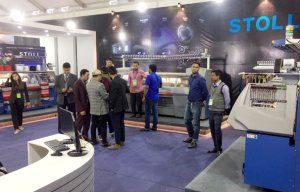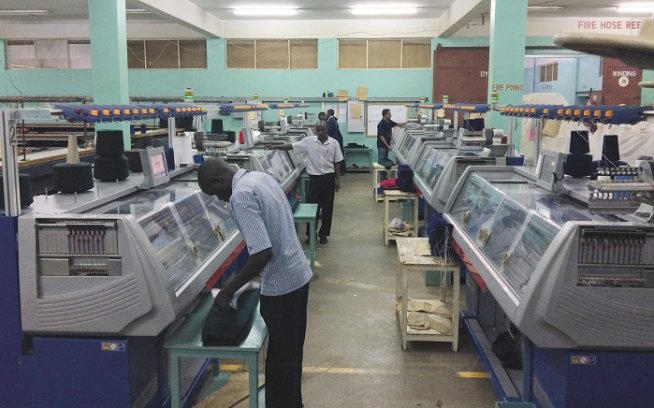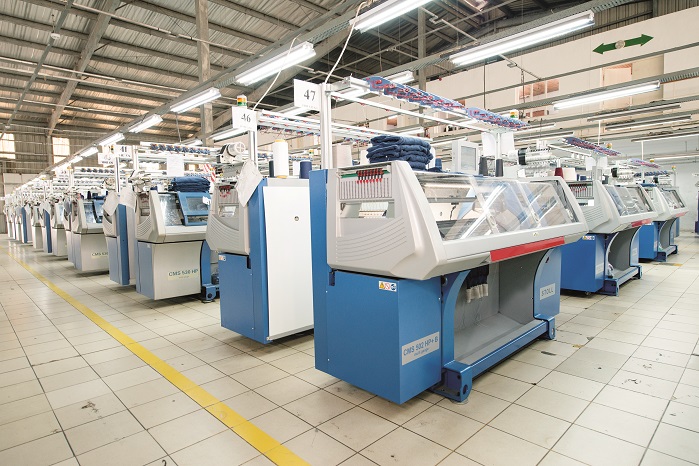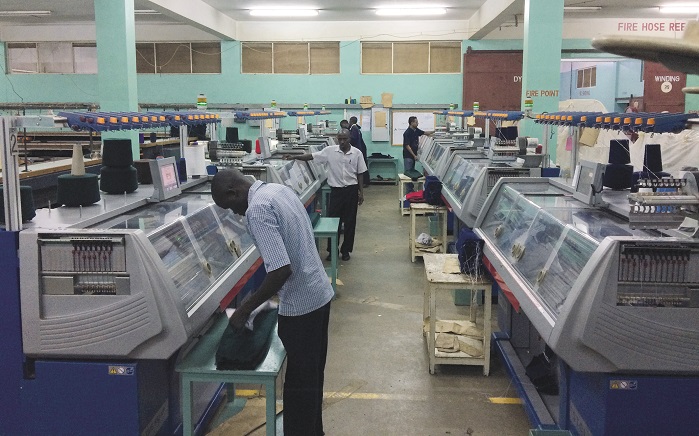
Stoll presents latest innovations in Bangladesh
For many years, Stoll has successfully served markets such as South Africa, Mauritius, Madagascar and the North African states.

17th September 2018
Knitting Industry
|
Reutlingen/Madagascar/Kenya
Africa has always played a significant role for Stoll, a leading manufacturer of flat knitting machines based in Reutlingen, with the oldest agency contract, in South Africa, dating back to more than 35 years. Especially in South Africa and Kenya, Stoll machines, built in the 1950s and 60s, are still running. The company is now sharing its success story and the future outlook on the growth opportunities in the region.
For many years, Stoll has successfully served markets such as South Africa, Mauritius, Madagascar and the North African states, including Libya. “In particular, the market around Madagascar is expected continue to develop,” the company says. “As one of the sub-Saharan countries, Madagascar enjoys advantages in terms of exports to Europe and the US. Where products are currently knitted to a large extent on hand machines, before long these will be replaced by electronic flat knitting machinery.”
Madagascar, compared to the long flat knitting history of its neighbour Mauritius, is a relatively new player in the business. The main hub is in the capital Antananarivo. But with Antsirabe, four hours’ drive south of Tana, a second city is getting more and more important for the textiles producing industry. “You will find purely locally owned companies as well as Mauritian, Chinese, Italian, French and Dutch owned companies. And wherever foreign ownership is involved, electronic machines play a more and more important role,” the company reports.

Currently, even with local salaries still at a low level, our European and Mauritian customers confirm, that investment in electronic machines is becoming more and more profitable than working on hand flats. Stoll customers mainly go for our 2- and 3-system compact machines that give them an optimum on productivity for an attractive price. Last year even saw the first Stoll ADF (independent direct feeding) machines coming to the market. A Stoll Dutch customer, and proud owner of these machines said: “You always have to show your buyers/customers something special in your collection. Even if it is not yet the right time for these kinds of designs/products, you have to be ahead of your competition.”
He strongly believes that the designs, being able to be realized on the ADF machines, will hit the market soon. First swatches shown on international yarn and fabric exhibitions have already strengthened him in his belief. Coming back to the city of Antsirabe, textiles producers are installing new factories to make use of an even cheaper labour. “But cheap labour does not automatically provide a desired output. In general, you have to train more people over a longer period of time to finally get what you need,” the company adds.
“Today, we have one huge Stoll customer already installed and a second one building up his factory to be operational by the end of 2018. A large quantity of Stoll machines has already been proposed for that project. Main countries are France, Germany, the US and South Africa. If the local government will invest more money in infrastructural programs like new roads, airports and hotels, then the country will definitely see a steep increase in economic growth.”
In the meantime, Kenya became the largest exporter of garments in the sub-Saharan Area followed by Lesotho, Mauritius and Ethiopia. Kenya has a huge weaving industry and mainly produces and exports all kinds of uniforms and traditional Kikoi products (colourful wraps, scarfs).

The flat knitting sector is dominated by the production of school sweaters. So far, only hand flat machines and basic semi-electronic machines from China and India were/are used for school sweater manufacturing. As living standard is rising, high quality school uniforms are in great demand. “One of the major reasons why Stoll is successful in this market,” the manufacturer says. It was already the beginning of the 1980s that the first electronic Stoll machines were imported. Today, Stoll is having a very sound customer base in Kenya, all producing high quality school sweaters on the latest CMS “HP” (High Productivity) version.
At the first purchase, all Stoll customers get training by Stoll’s technical department. This specialised training makes the local technicians fit and able to reply to all requested demands. “There is no other supplier of electronic flat knitting machines offering this service, therefore, it is another important reason why customers are opting for Stoll. As flat knitted fashion items are up to now mainly imported as new or second hand, this field has been quite neglected by local producers. You hardly find a Kenyan knitwear brand or fashion boutiques. But with the assistance of Stoll, by recommending special fashion trade-fairs, yarn suppliers, potential buyers, our (potential) customers are starting to enter this field.
“Something you would not have been expected is that even shoe uppers are produced in Kenya on Stoll machines. Stoll customers, supplying school uniforms and/or traditional Kenyan garments, see this as a new and huge opportunity to open a new business field. Economically, Kenya is also moving ahead. The new railroad between Mombasa and Nairobi is helping local entrepreneurs to ship goods in a much faster way to the next seaport and, from there, to Europe or the US. Kenya is moving ahead, also with Stoll.”
Further reading

Business intelligence for the fibre, textiles and apparel industries: technologies, innovations, markets, investments, trade policy, sourcing, strategy...
Find out more